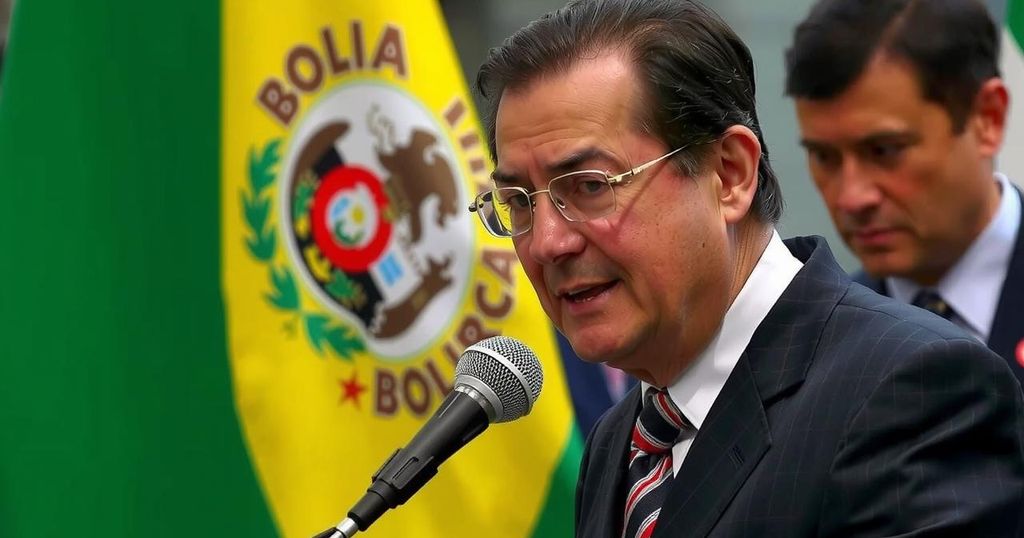Evo Morales Claims Assassination Attempt Amid Political Turbulence in Bolivia

Evo Morales, Bolivia’s ex-president, claims that shots were fired at his car amidst escalating political tensions with current President Luis Arce. He characterized the incident as a planned assassination attempt. As Morales and Arce engage in a power struggle ahead of the 2025 elections, civil unrest and road blockades instigated by Morales’ supporters have further destabilized the political landscape, coinciding with economic crises and allegations against Morales.
Evo Morales, the former president of Bolivia, reported that his vehicle came under gunfire during a recent incident amidst escalating political tensions in the country. In a radio interview, he described being intercepted by two vehicles that fired shots at his car, narrowly missing him. Morales stated, “I don’t know if they were soldiers or police,” and claimed that the attack was premeditated, asserting, “This was planned. The idea was to kill Evo.” The incident, which occurred on a Sunday, raises serious concerns about political stability in Bolivia, particularly as Morales and the current President, Luis Arce, are embroiled in a struggle for power within their ruling socialist party, the Movement Toward Socialism (MAS), ahead of the 2025 elections. Morales shared a video via Facebook that showcased damage to his vehicle, showing bullet holes in the windshield. Although the driver sustained injuries, he continued to operate the vehicle. Roberto Rios, the Deputy Security Minister, indicated that a thorough investigation would be conducted into the alleged attack, stating the necessity to probe all reports of this nature, regardless of their authenticity. The political landscape in Bolivia is further complicated by civil unrest, as Morales’ supporters have engaged in road blockades throughout central Bolivia. These actions have prompted responses from security forces, resulting in confrontations that threaten to escalate unrest within a nation already grappling with economic challenges. Criticism has been directed toward Morales by the government, accusing him of trying to destabilize the country through persistent protests and road blockades that have impeded food and fuel supplies. Additionally, it has been claimed that certain factions affiliated with Morales are armed, alarming authorities regarding a potential outbreak of violence. Recent encounters with law enforcement have led to injuries among police officers and numerous arrests. Morales, who served as President from 2006 to 2019, faces allegations unrelated to his political disputes, including accusations of inappropriate relationships with minors. He has publicly denied these claims, describing the ongoing investigation against him as “yet another lie” and attributing it to political persecution by the current government. With both economy and political stability at risk, Morales’ claims, alongside the ongoing power struggle, underscore an increasingly volatile situation in Bolivia.
The political climate in Bolivia has become increasingly tense as former President Evo Morales and current President Luis Arce contend for influence within their shared party, the Movement Toward Socialism (MAS). The upcoming presidential elections in 2025 have intensified their rivalry, with Morales facing challenges not only from his political adversary but also from significant allegations of misconduct. The unrest has been exacerbated by actions from Morales’ supporters, who have engaged in protests and blockades aimed at undermining governmental authority. As the country experiences economic challenges, including dwindling resources and inflation, the political infighting adds layers of complexity to the national discourse.
In conclusion, the reported shooting incident involving Evo Morales highlights the severe political tensions brewing in Bolivia as the country edges closer to the 2025 elections. With rising unrest and accusations of government intimidation, the power struggle between Morales and Arce reveals deep divisions within the ruling party, complicating efforts to navigate economic challenges and maintain stability in the region.
Original Source: www.aljazeera.com







